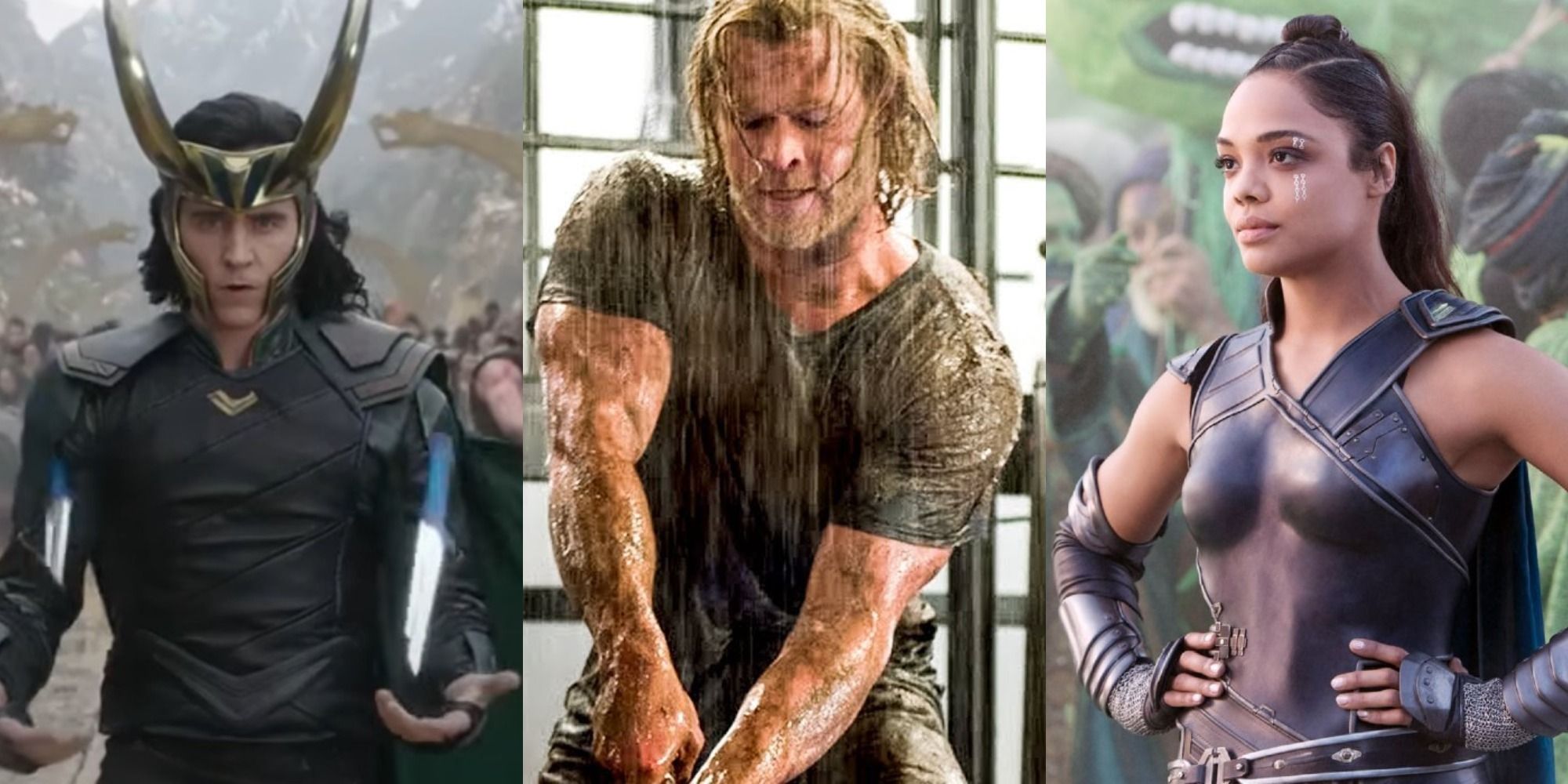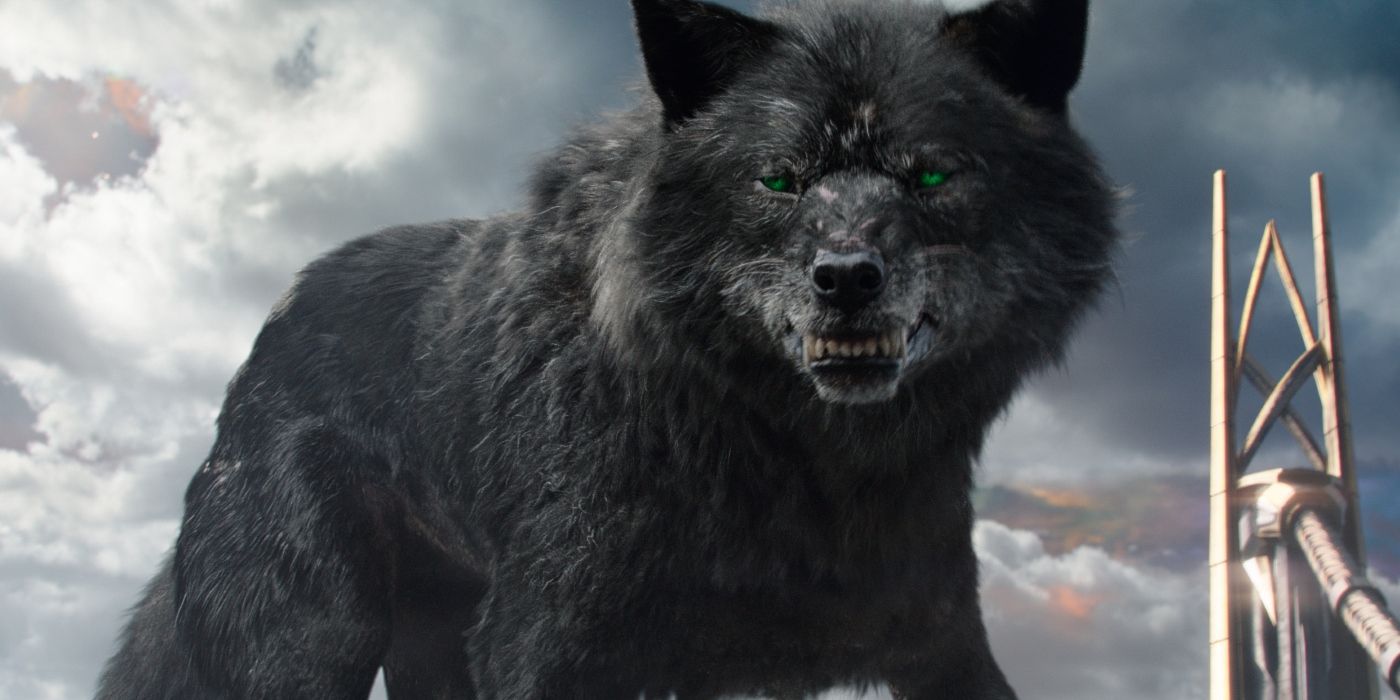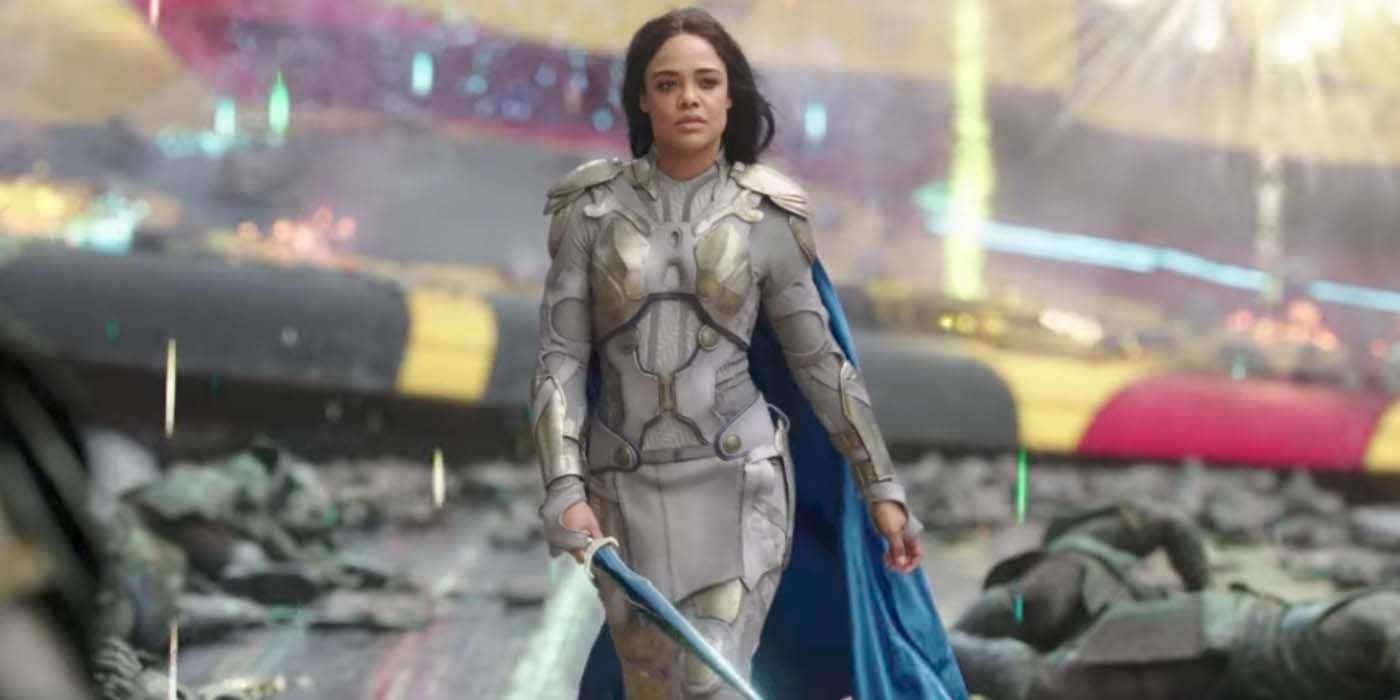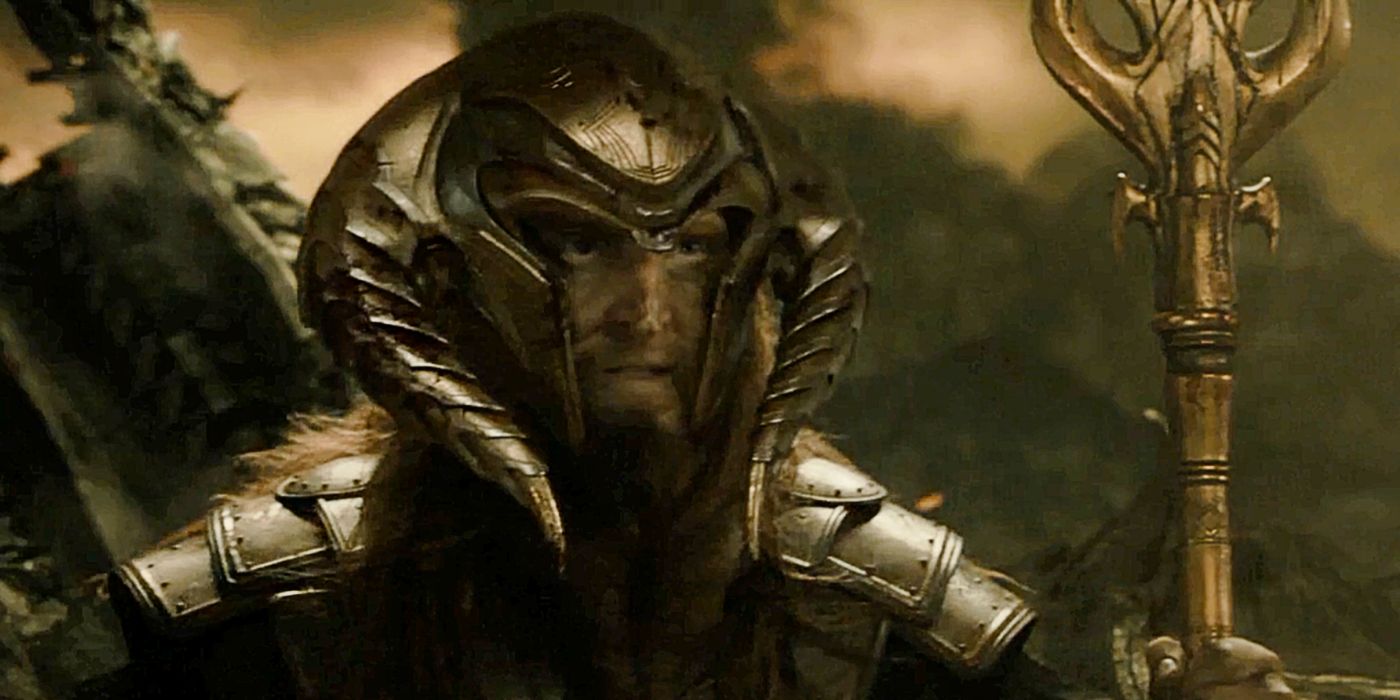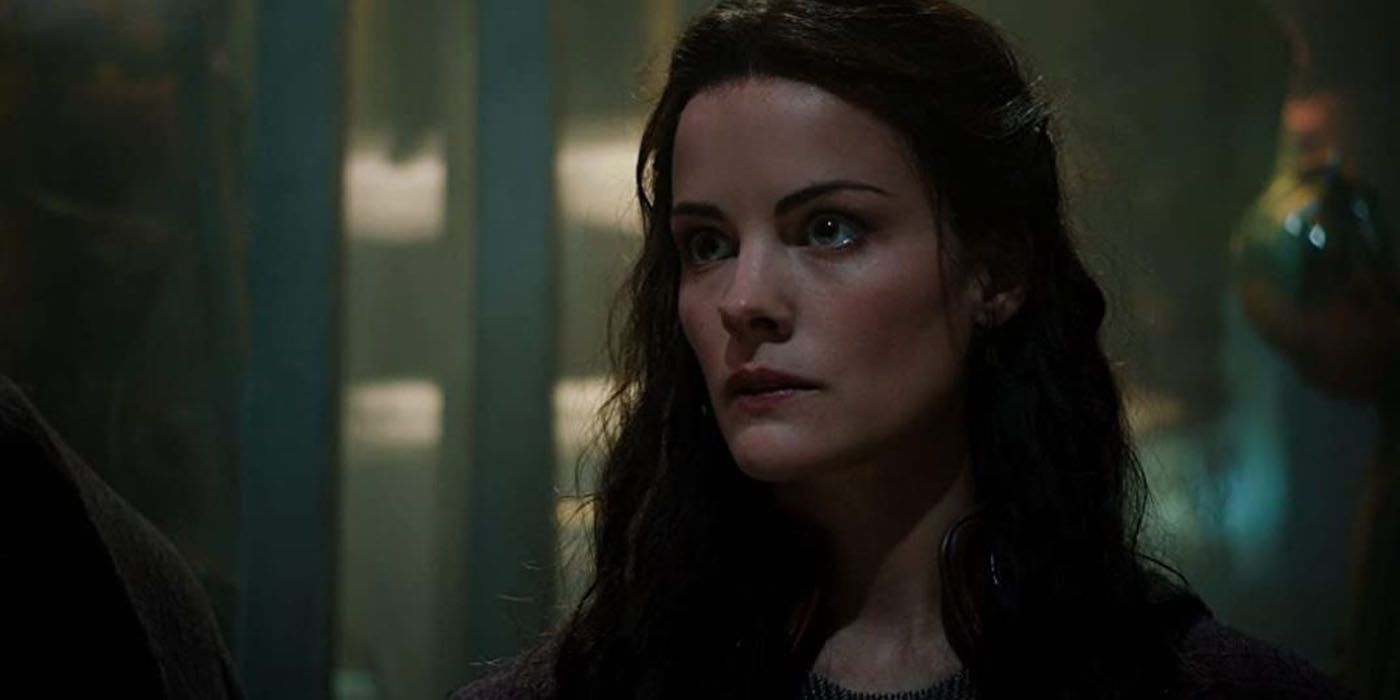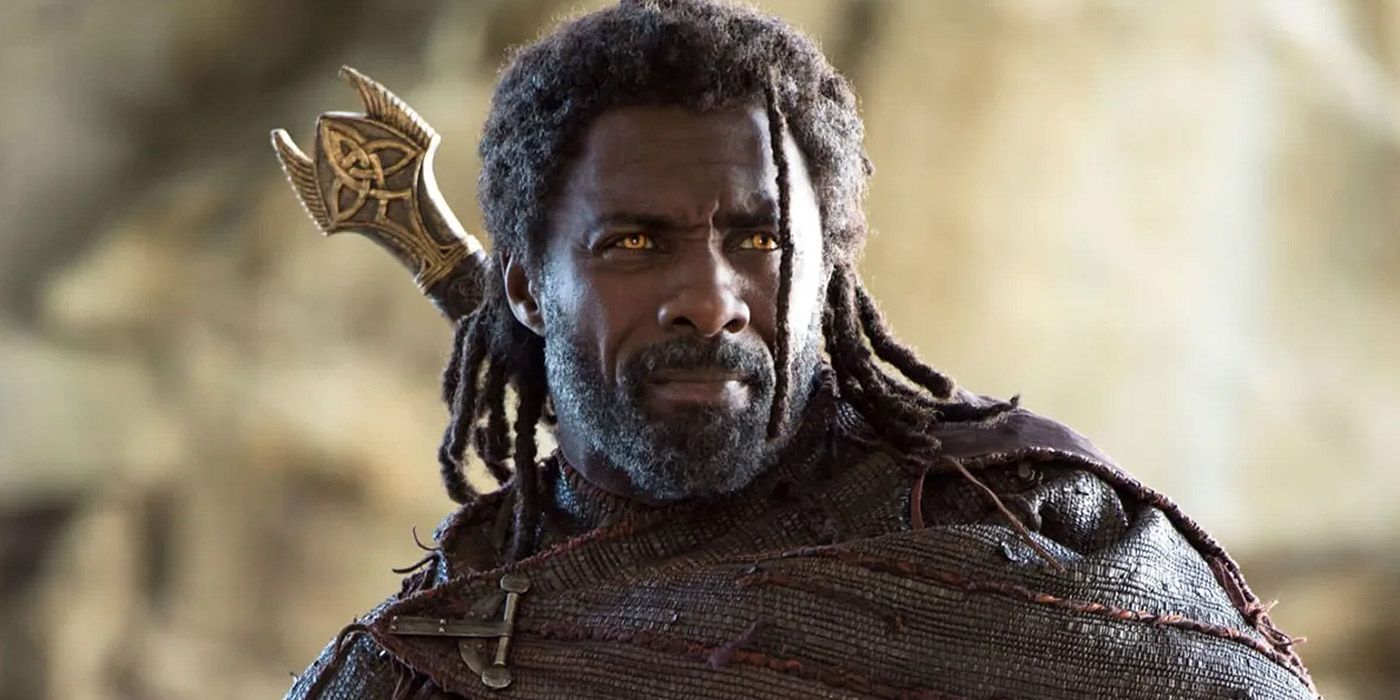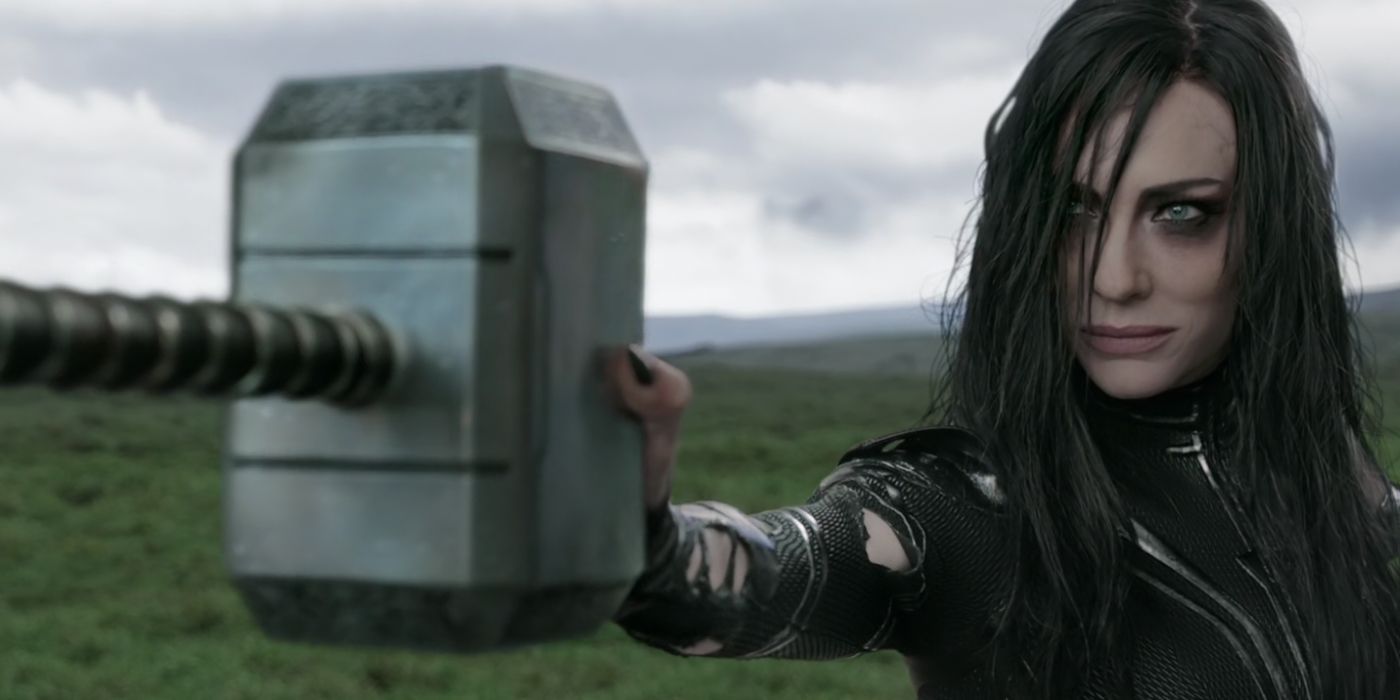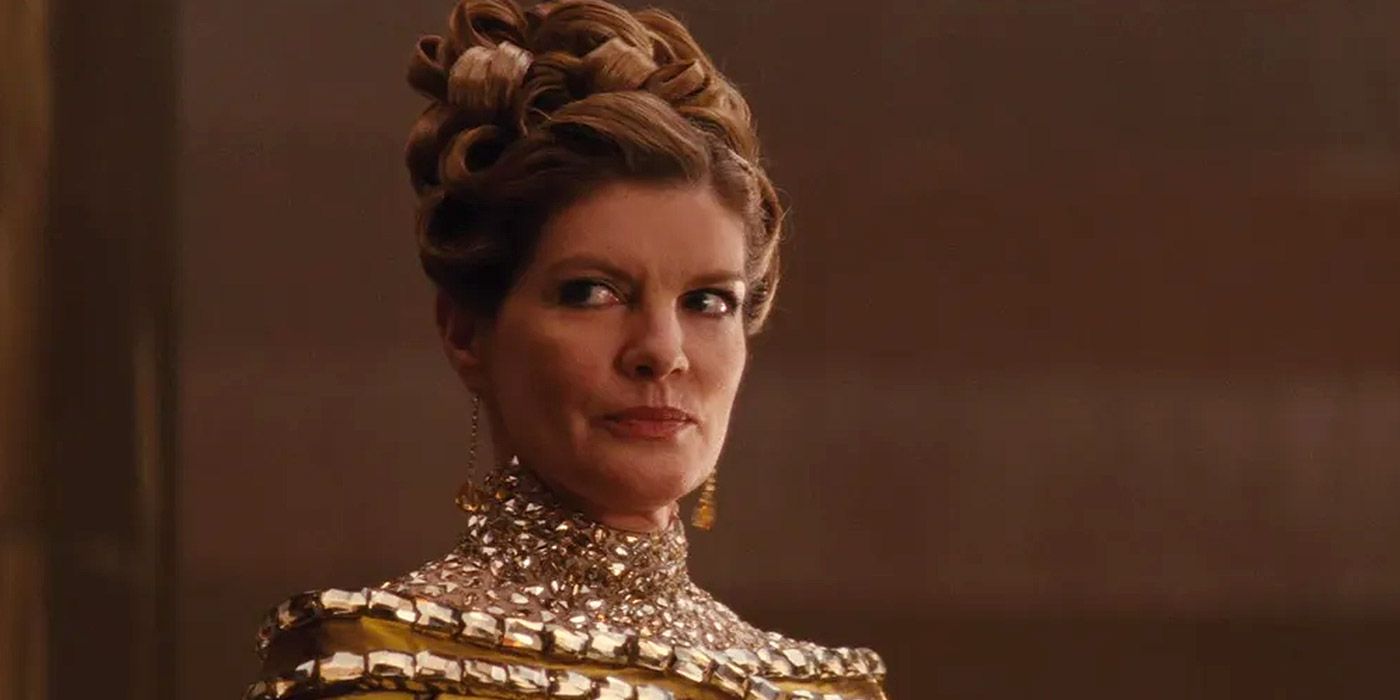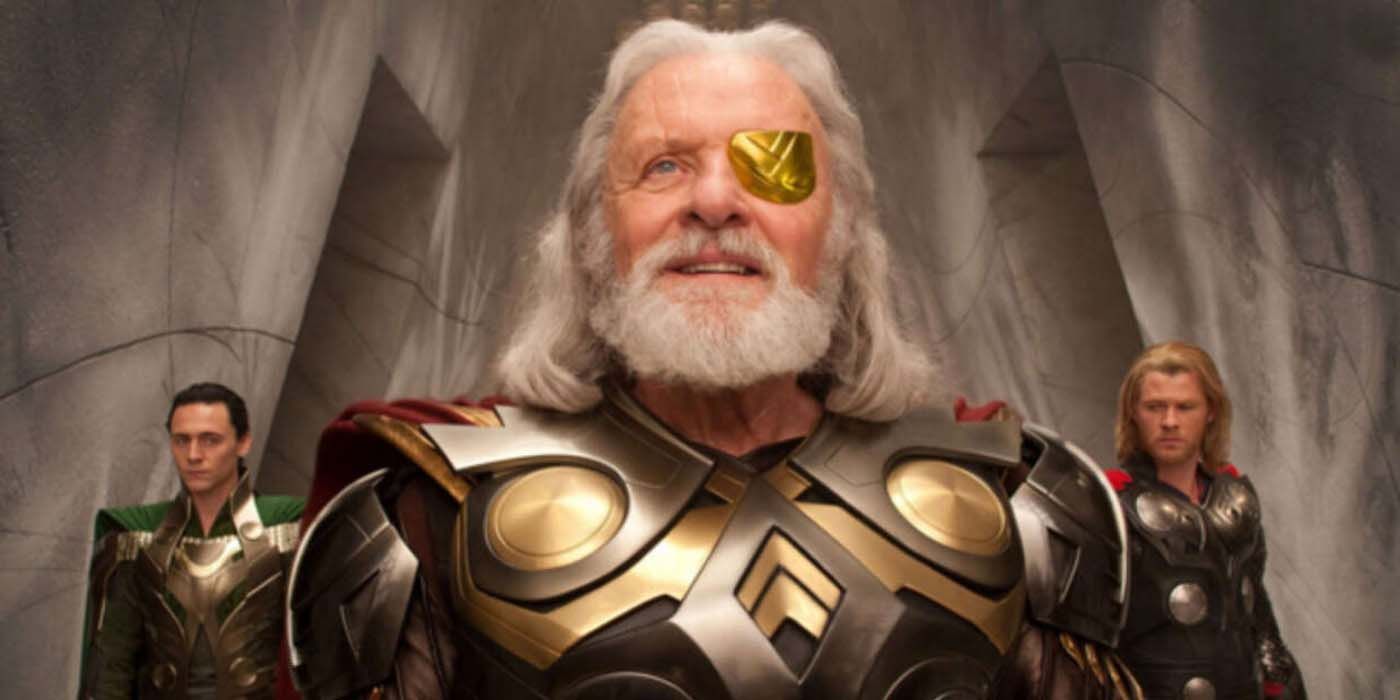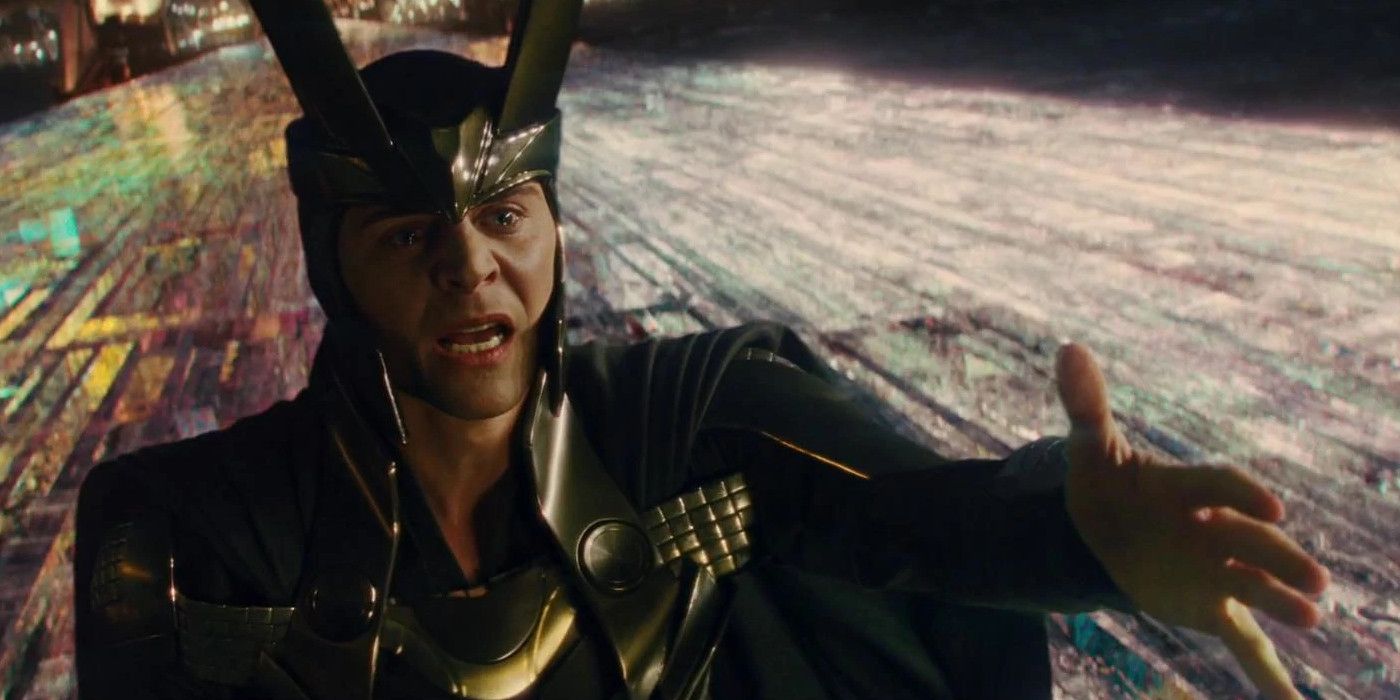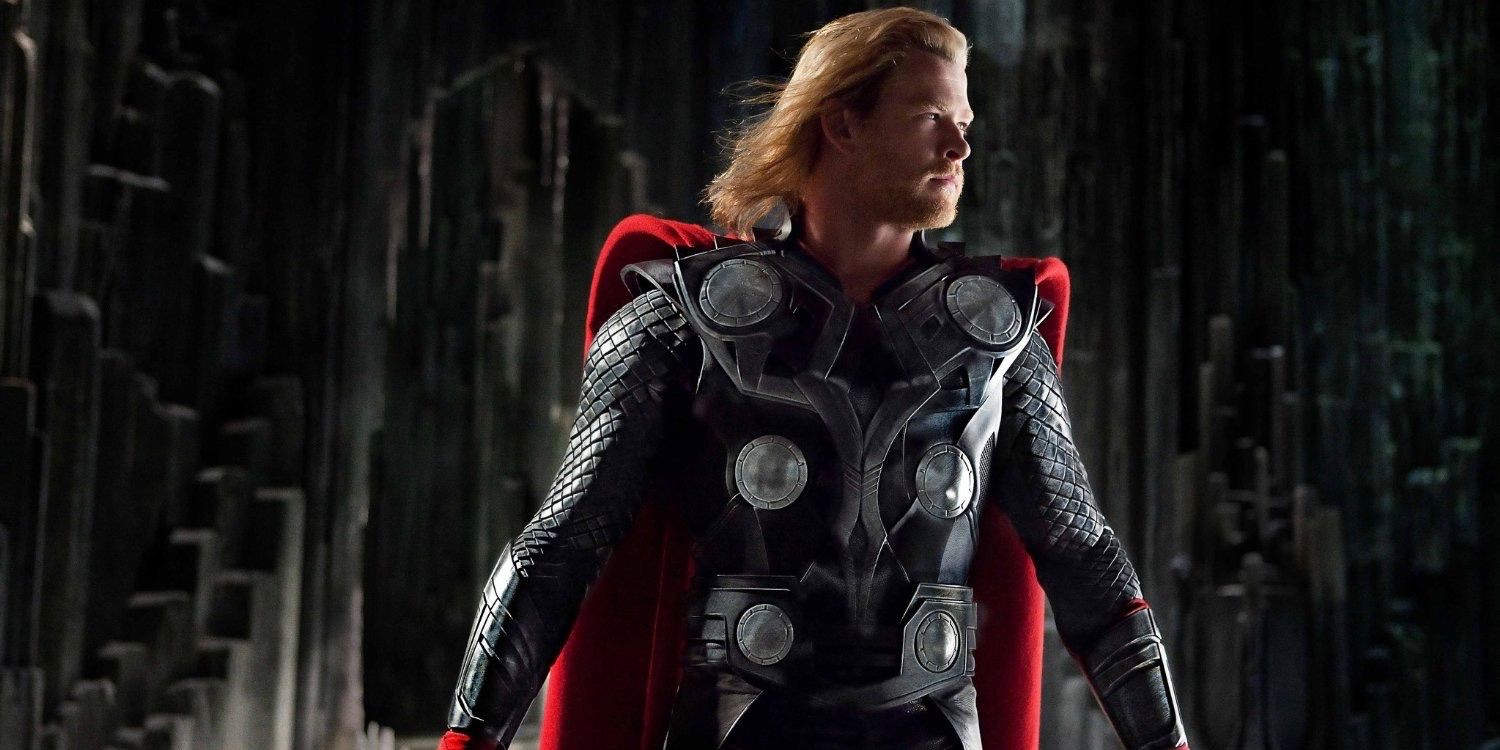The Thor franchise is expanding later this year, with the much-anticipated Taika Waititi-directed fourth installment, Thor: Love and Thunder, set to hit theaters this summer. The sequel looks ready to delve deeper into the god of thunder and his compatriots as they face a threat like never before.
The characters of this franchise have become beloved among the MCU fandom, becoming iconic staples of the series. Many of these characters have their roots deep in Norse mythology, where figures like Thor, Loki, and Heimdall were worshipped as gods. But how do these characters measure up to their mythological counterparts?
Fenris Wolf
Fenris Wolf, also known as Fenrir, is a monstrous wolf in Norse mythology, whom the gods of Asgard keep chained up in fear of his strength. It is foretold that this child of Loki would one day break free from his chains at the outbreak of Ragnarok, the death of the gods, upon which he will swallow the sun and then Odin himself before being put down by the god Vidar.
The version of Fenrir introduced in Thor: Ragnarok does bear a striking resemblance to his mythological counterpart, all while proving to be one of the best animal sidekicks in the entire MCU. The film version is indeed released from bondage just before the onset of Ragnarok. While the wolf does not bring about Odin's demise, nor swallow the sun, the filmmakers do include a visual nod to the mythology, with one shot of the wolf framed just so that his jaws blot out the sun in the background.
Valkyrie
Tessa Thompson's character of Valkyrie is actually based on the mythological character known as Brunhilde, whose story is told in the Edda, a collection of Norse and Germanic poems that make up much of the mythology known today. Brunhilde is depicted as the lover of the hero Siegfried, but is also often the cause of his death after he callously deceives her into marrying another man.
The MCU's Valkyrie does share much of her fighting style and appearance with her mythological counterpart, having served on an elite female force of Asgard. However, her personality seems much different thus far, with little of Valkyrie's story revolving around the men in her life, instead making her a self-established hero.
Bor
Bor is the grandfather of Thor and the father of Odin, Vili, and Ve. Very little is known about this figure in Norse mythology, as he is canonically only mentioned a handful of times, with little to no further information given.
Interestingly, the MCU's version of Bor has an equal element of uncertainty around him. The audience knows only that he is the father of Odin and that he did battle with the Dark Elves at some point in his rule. Beyond that, the character, like his original counterpart, is a mystery.
Lady Sif
Jamie Alexander's Lady Sif is based on the mythological character of the same name, who is recognizable by her flowing locks of golden hair. The character is typically associated with the earth, and therefore fertility, family, and marriage, as these often go together in a mythological setting. She is also depicted as the wife of Thor, the thunder god.
The cinematic version of Sif is not particularly similar to the myth. She does not possess the golden hair of the original, nor is she romantically involved with Thor, though the first Thor filmed seemed to hint at an unrequited love on her part for the god of thunder. Lady Sif also has little association with the earth, marriage, or family in any symbolic way, instead playing the part of a warrior.
Heimdall
Heimdall is commonly referred to as the "watchman of the gods." He was believed to be the guard of the Bifrost bridge and was fated to die in battle against the trickster god Loki when both would manage to kill the other during Ragnarok.
Idris Elba portrays the MCU's rendition of Heimdall, who does bear some resemblance to his mythological roots. Like the myth he is originally based on, Heimdall does guard the rainbow bridge and seems to be the head guard for the gods. He does not, however, die in battle against Loki, but against the Mad Titan Thanos.
Hela
Hela, or Hel, is the goddess of death and the dead, who rules over one of the Nine Realms, Niflheim, which humanity perceives as a literal "hell." The Norse goddess is the daughter of the trickster god Loki and the giantess Angrboða.
The MCU's Hela is certainly a villain worthy of her own spinoff series, perhaps where more of her mythological origins could be explored. The cinematic version of the character is represented as the goddess of death but is also shown to be quite evil, an element that was never truly present in the myth. The film also changed Hela's parentage so that she too was a child of Odin, though this was never the case before.
Frigga
The goddess Frigga is a somewhat more ambiguous character than other Norse figures. She is typically depicted as a loving wife to Odin and mother to the god Balder. However, some versions of Norse myth depict her as being less moral and somewhat of a schemer.
The Frigga of the MCU checks all the boxes in regard to her mythological counterpart, filling the same roles as Queen of Asgard and wife of Odin. However, the films altered the story to make her the biological mother of Thor, which is not the case in the myths. Additionally, the film version of Frigga meets her end differently than that in the old stories, being stabbed by a Dark Elf, breaking the hearts of her children, especially Thor.
Odin
Odin is an immensely important figure in Norse mythology, perhaps the most important of the Asgardian gods. Also known as the Allfather, Odin is the King of Asgard and of the gods, who serves both as the god of war and poetry. He is often depicted as a grizzled old man, like an elder warrior who has seen many a battle in his long lifetime.
The MCU's Odin looks strikingly similar to art depicting the Norse god, scoring points for authenticism in appearance alone. The character has been both a benevolent and a bloodthirsty ruler, with the franchise explaining that his "war god" tendencies eventually gave way to a rule of peace and prosperity for the Nine Realms.
Loki
Like many mythological pantheons, the Norse mythology includes a trickster god, whose shenanigans and treachery are sometimes quite dire--and other times played for laughs. The mythical Loki plays the role perfectly, whose antics are the heart of many tales, but also bring about the death of the gods in Ragnarok.
The MCU's version of Loki has lived a very difficult life, which is meant to make him a more sympathetic character by nature. However, the cinematic universe has done the work to make their version of the character much like the original myths. He too is an incorrigible trickster who has helped both the good and evil sides of conflicts. Interestingly, it is also Loki who physically initiates the beginning of Ragnarok, just as he is fated to do in the Norse Edda.
Thor
Thor is perhaps the most famous of the Norse gods, with a rule over the thunders of the heavens and a desire to protect Midgard, the home of humanity, from the villainous Jörmungandr, a world-ending serpent, with his trusty hammer Mjöllnir. The god, like almost all the others, was fated to die in the battle of Ragnarok.
The cinematic version of Thor, played by Chris Hemsworth, has both similarities and differences from his mythological counterpart. His appearance, for example, is blonde and blue-eyed, in contrast to the typically red hair and beard of the original character. The film version also tends to be light-hearted, though not in the way the thunder god is usually depicted, whose crass jokes fit the Nordic Viking culture. Unlike the myths of Ragnarok, this version of Thor survives the destruction of Asgard, going on to fight alongside Earth's Mightiest Heroes in several more battles thereafter.

